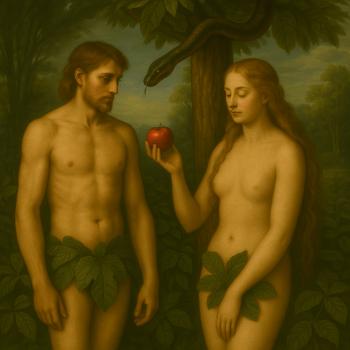Are we separate from God and from each other? Many religions, particularly Eastern religions such as Buddhism, Hinduism, and Taoism, embrace nonduality. Christianity, too, has been interpreted in nondual terms.
Shankara, is an eighth-century Hindu philosopher, sometimes called the Plato of the East. He outlined the philosophy of Advaita Vedanta, Advaita meaning nondual or “not two” and Vedanta meaning “the end of the Vedas” or “the end of knowledge.”
Advaita Vedanta is the foundation of many Hindu beliefs. Nonduality suggests that Brahman or Ultimate Reality is a Oneness, where separation is an illusion. He wrote:
“There is the real Self, which is the eternal. But we do not realize our life as that of the real Self. Why do we not realize it? Because of two errors, or illusions, which make up the double heresy of separateness. The first error is the error of our separateness from the Eternal. The second error is the error of our separateness from each other.”
Shankara clarified Hindu theology by subtraction, reducing the many concepts in the Vedas, the Upanishads, and the epic poems to their common denominators.

Duality and Nonduality
Generally, the Western religions and the Western worldview are dualistic, emphasizing separation. For example, in Genesis, everything is separated—Creator and creation, God and humans, humans and animals. God is “up there,” and we are “down here.”
In church, people are separated, too—clergy and laity, men and women, straight people and gay people. The church itself is separated into numerous denominations.
The Eastern religions and the Eastern worldview are nondual, emphasizing no separation. God is “a part of us;” God is not ”apart from us.” Everyone is related and everything is connected.
In the East, it is common to say that we are like ephemeral waves in an eternal ocean. The ocean is always in the wave, and the wave is always in the ocean.
The Indian phrase “namaste” means “the divinity in me recognizes the divinity in you,” which might sound jarring to some Westerners.
Mystics and Scientists
Today, many mystics and many scientists see the universe in nondual terms, too. Approximately one-third of us have had a mystical or peak experience, where we experience a nondual Oneness.
Often, mystics encounter an impersonal force, not a person; immersion in the here and now, not transportation to another place and time; a sense of benevolence and connectedness, not a sense of judgment and punishment or reward; consistent with the Eastern worldview.
In the old Newtonian physics, people and things are discrete objects, interacting like billiard balls. Systems are atomistic or reductionist; the whole is the sum of the parts; consistent with the Western worldview.
In the new quantum physics, people and things are linked in an interconnected field, a oneness. Systems are holistic or relational; the whole is in the parts and the parts are in the whole; consistent with the Eastern worldview.
Christian Nonduality
In The Way, I point out that Jesus lived in the Middle East, at the confluence of the Eastern and Western worlds. We interpret Jesus through the lens of 2,000 years of Western civilization, without realizing how many of his actions and words reflect an Eastern worldview and suggest nonduality.
Jesus says, “The Kingdom of God is within you…. I and the Father are one…. I am in the Father, you are in me, and I am in you…. You are gods, and all of you are children of the Most High.”
In the Gospel of Thomas, the so-called fifth gospel, Jesus says, “The kingdom of the father is spread out upon the earth, and men do not see it…. Split a piece of wood; I am there. Lift up the stone, and you will find me there.”
Paul, too, sounded decidedly nondual, when he paraphrased an Athenian poet, by saying, “In him we live and move and have our being.”
More recently, some Christians refer to God in impersonal terms. Christian philosopher Paul Tillich referred to the “God above gods” or the “ground of being.” Similarly, Christian mystic Meister Eckhart referred to the “Godhead.” Eckhart famously said, “The eye with which I see God is the same eye with which God sees me.”
(Jesus called God the Father. He assumes the common (but not sole) Jewish view that God is personal. But, in biblical times, could they describe God in any other way?)
Rubber, Meet Road
In apophatic or negative theology, some believe that we should define God by saying what God is not, rather than by saying what God is, since attempts to define God will constrain or limit God. In Hinduism, they say, “neti neti,” meaning “not this, not that.”
What can we learn from the Eastern religions, the mystics, and the scientists about the nature of Ultimate Reality, our place in the Universe, and our relationship with God?
Did Jesus teach that we are separate from God and from each other? How would our personalities, our politics, and our religions change if we realized that we are woven into the fabric of the Universe?
When Jesus said that we should love your neighbor as ourselves, when Shankara said that we are not separate from each other, and when I say that everyone is related, are we saying much the same thing?
Are we separate from God and from each other?
If you want to stay up to date on the latest from You Might Be Right, simply subscribe with your email.














